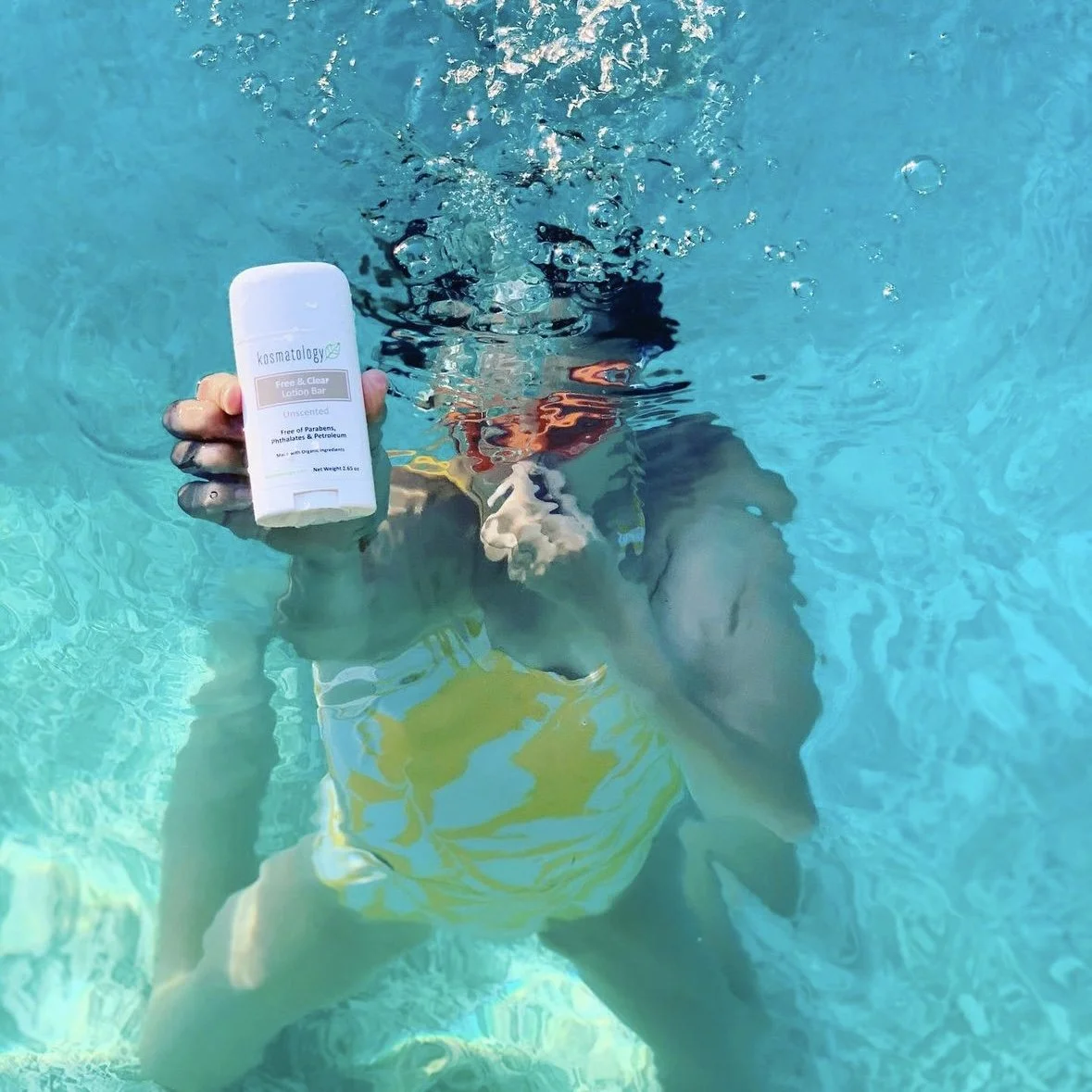Minimizing Chlorine Exposure in the Summer
Lazy summer days by the pool is a right of passage. But with this poolside fun, it also brings with it increased exposure to chlorine. While chlorine is essential for keeping pools clean and safe from harmful bacteria, prolonged exposure can have adverse effects on your skin, hair, and overall health. Here’s a comprehensive guide to help you enjoy your summer while minimizing chlorine exposure.
Understanding Chlorine and Its Effects
Chlorine is a powerful disinfectant used to kill bacteria and other pathogens in swimming pools. While effective at maintaining hygiene, chlorine can cause:
Skin Irritation: Prolonged exposure can lead to dry, itchy skin and exacerbate conditions like eczema.
Hair Damage: Chlorine strips natural oils from hair, making it dry and brittle.
Respiratory Issues: Inhalation of chlorine fumes can irritate the respiratory tract, especially in people with asthma or other respiratory conditions.
Eye Irritation: Red, burning eyes are a common complaint among frequent swimmers.
Tips to Minimize Chlorine Exposure
1. Shower Before and After Swimming
Rinsing off before entering the pool reduces the amount of organic matter (like sweat and lotions) that reacts with chlorine to form harmful byproducts.
Showering after swimming with Kosmatology Body Wash helps remove chlorine residue from your skin. Also, moisturizing after will replace any oils stripped from your skin from the chlorine. Kosmatology Lotion bars are a perfect pick.
2. Wear Protective Gear
Swim Caps: Wearing a swim cap can protect your hair from chlorine damage.
Goggles: Protect your eyes from irritation by wearing swimming goggles.
3. Stay Hydrated
Drinking plenty of water helps keep your skin hydrated, reducing the drying effects of chlorine.
4. Choose Outdoor Pools When Possible
Outdoor pools have better ventilation, which helps dissipate chlorine fumes and therefore reducing respiratory exposure.
5. If Possible Opt for Saltwater Pools
Saltwater pools use a chlorine generator, which produces chlorine in lower concentrations. They are gentler on the skin and eyes compared to traditional chlorinated pools.
6. Wear UV-Protective Swimwear
Some swimwear brands offer UV-protective clothing that also serves as a barrier against chlorine.
Maintaining Pool Hygiene
For pool owners, maintaining proper pool hygiene can reduce the need for high chlorine levels:
Regular Testing: Frequently test the pool water to maintain balanced pH and chlorine levels.
Proper Filtration: Ensure your pool's filtration system is working efficiently to reduce the reliance on chlorine.
Shock Treatment: Use non-chlorine shock treatments to oxidize contaminants in the water.
While chlorine is essential for pool hygiene, its exposure can be minimized with a few proactive steps. By integrating these tips into your summer routine, you can enjoy a day by the pool without compromising your health.


